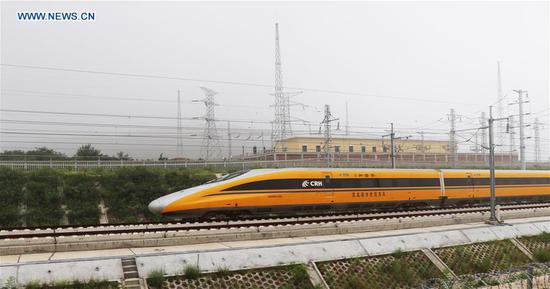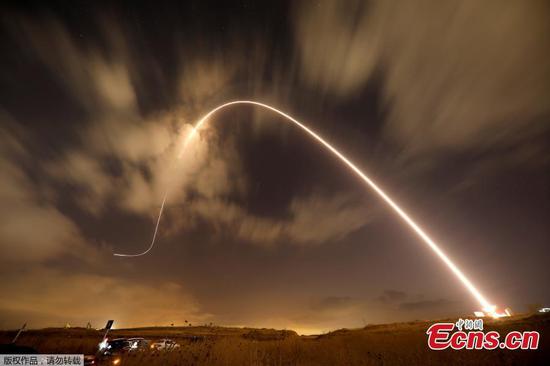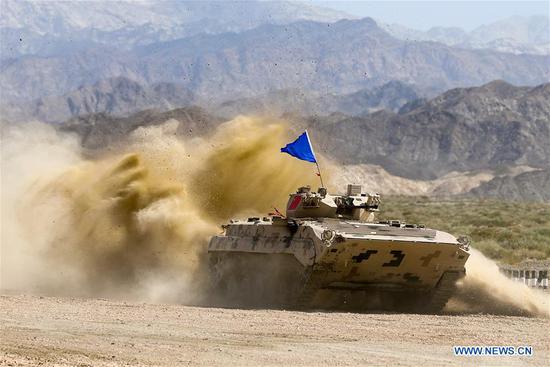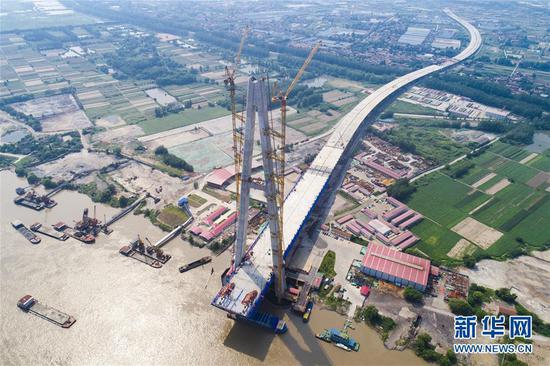Economic sanctions imposed by the United States over the last week against Iran, Russia and Turkey will ultimately undermine U.S. foreign policy goals, experts have said.
The U.S. government has announced to re-impose sanctions on Iran, to ban exports of national-security sensitive goods and technologies to Russia, and to double the rate of tariffs on steel and aluminum imports from Turkey.
Speaking of the reasons behind U.S. government's picking of steel and aluminum products from Turkey, David Pollock, a senior fellow at the Washington Institute for Near East Policy, told Xinhua that it was "partly in line with the overall sanctions effort, the trade war so to speak."
"It appeals to (US President Donald) Trump's political base and it's part of his economic ideology or vision to try and restore traditional manufacturing sectors," he said.
However, Dan Mahaffee, senior vice president and director of policy at the Center for the Study of the Presidency and Congress, told Xinhua that "Section 232 gives the president a wide latitude to justify trade action under national security purposes, though in this way it's being employed more in a punitive sense rather than protecting a U.S. industry for the sake of national security."
The Washington Post said that the steel and aluminum tariffs originally had nothing to do with the treatment of pastor Andrew Brunson, who is being detained by Turkey.
"They are tied to the trade fight that Trump launched earlier this year with a number of countries, including Turkey," it said. "The Turkish currency has steadily weakened in recent months, removing some of the bite of the tariffs by making Turkish goods cheaper for U.S. consumers. One way to address that, as Trump signaled Friday, is to double the tariff rate."
The New York Times said in an article that "Trump's decision ... spooked markets and raised the possibility that he could similarly increase tariff rates on other trading partners that have seen their currencies fall against the strengthening dollar."
Moreover, Eswar Prasad, an economist at Cornell University, was quoted as saying that the use of tariffs in the tense diplomatic scenario set "a worrying precedent for future trade sanctions that could be triggered by purely market-driven changes in exchange rates."
Edward Price, the special assistant of former U.S. President Barack Obama, tweeted that U.S. consumers will pay for Washington's sanctions against a North Atlantic Treaty Organization (NATO) ally and vital counter-Islamic State (IS) partner, and these steps would not help secure Brunson's release.
In response to the U.S. sanctions and other economic pressure on his nation over the case of Brunson, who faces terrorism charges and up to 35 years in prison if found guilty, Turkish President Recep Tayyip Erdogan on Friday characterized them as an "economic war."
"We are not going to lose" in the process, Erdogan said.
Russian Prime Minister Dmitry Medvedev said on Friday that Moscow considers Washington's sanctions as a declaration of economic war, vowing to "respond to it -- economically, politically or in any other way, if need be."
Iranian President Hassan Rouhani said on Monday that the Iranians would make the United States regret reimposing sanctions, and "negotiations with sanctions don't make sense," referring to Trump's recent call for direct talks with him.
Republican Senator Rob Portman of Ohio tweeted that "Section 232 is a powerful trade tool used in matters of national security, but its misuse could result in loss of the tool or repercussions from other countries."
Chad Bown, a senior fellow at the Peterson Institute for International Economics, a U.S. think tank, was quoted by The New York Times as saying that Washington's move sent a "worrisome" signal to the world, as Trump "is tweeting that when a crisis emerges -- which could happen in Turkey -- his gut instinct is to exacerbate the problem by imposing more tariffs, instead of stepping in with leadership to help resolve the emergency."
"The Trump administration is no stranger to using its economic power as a political weapon to hit foreign powers," The Washington Post said. "Trump has made clear that he is hoping to use the economic pain caused by these tariffs to force other countries to agree to a range of concessions."
A separate commentary in the newspaper said that for the U.S. government, sanctions are being used in place of foreign policies, rather than serving as the latter's supplement.
"The simplest issue with Trump's sanctions-heavy, strategy-light policy is the wasted effort. But they could also produce more subtle effects that would be bad for the United States going forward," said the article.
"And it's worth remembering that one reason that the United States can effectively employ sanctions is because of its hegemonic power over the global financial system. In the long term, that could change as foreign powers grow more and more disillusioned with Washington's supposedly steady hand."


















































